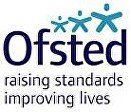Supporting Children with Special Education Needs in Early Years
Supporting Children with Special Educational Needs

Supporting children with special educational needs during their early years is crucial for their development and well-being. Early intervention and a nurturing environment can significantly impact their lives, setting the foundation for future success. This guide provides practical strategies for parents and educators to create inclusive and supportive settings for children aged 0-5 with special needs. By understanding their unique challenges and needs, we can work together to ensure these children have the best start in life.
Understanding Special Educational Needs in Early Childhood
Children with special needs may face physical, developmental, behavioural, or emotional challenges requiring specific support. Early diagnosis and intervention are essential in addressing these needs effectively. Common signs include delayed milestones, difficulty with communication, and unusual behaviours. For instance, a child may have trouble interacting with peers, show repetitive behaviours, or struggle with motor skills. Recognising these signs early on helps in seeking appropriate help and creating an effective support plan.
Early intervention involves a team of professionals, including paediatricians, therapists, and educators, working together to support the child’s development. This collaborative approach ensures the child receives comprehensive care tailored to their unique needs. Early intervention programs can include speech therapy, occupational therapy, and physical therapy, each playing a vital role in addressing different aspects of a child's development.
Creating an Inclusive Environment at Home
Parents play a crucial role in supporting their children with special educational needs. Creating a supportive home environment involves adapting daily routines and being mindful of the child’s sensory preferences. For example, some children may need a quiet, clutter-free space to focus, while others might benefit from sensory toys that provide tactile stimulation.
Effective communication is also critical. Using visual aids, simple language, and positive reinforcement can help children understand and express themselves better. Visual schedules can help children anticipate and prepare for daily activities, reducing anxiety and promoting independence. Emotional support through patience, love, and encouragement boosts their confidence and resilience.
Incorporating play into daily routines is another effective strategy. Play is not only a natural way for children to learn but also an excellent opportunity to develop social, cognitive, and motor skills. Parents can engage in activities that cater to their child’s interests and abilities, such as building blocks for fine motor skills or role-playing games to enhance social interactions.
Effective Practices in Early Years Education
Educators must adopt inclusive teaching methods to support children with special educational needs. Differentiated instruction, where lessons are tailored to each child’s abilities, is essential. For example, while one child may benefit from hands-on activities, another might excel through visual aids or storytelling.
Individualised Education Plans (IEPs) are formal documents outlining specific goals and strategies for each child, ensuring they receive the necessary support. These plans are developed collaboratively by educators, parents, and specialists, focusing on the child's strengths and areas needing improvement. Regular reviews and updates of IEPs ensure they remain relevant and effective.
Collaboration between parents and educators is vital. Regular communication helps in sharing insights and progress, creating a consistent support system for the child. This can include regular meetings, progress reports, and shared goals. Educators should also foster an inclusive classroom culture where all children feel valued and included. Simple gestures like celebrating diversity, encouraging peer support, and using inclusive language can make a significant difference.
Accessing Resources and Support Services
Numerous resources and support services are available for children with special educational needs and their families. These include early intervention programs, special education services, and support groups. Navigating these resources can be overwhelming, but understanding your child’s rights and the available services can make it easier.
Advocating for your child’s needs involves communicating with healthcare providers, educators, and support agencies. Being informed and persistent ensures that your child receives the necessary support to thrive. Parents can join support groups to connect with other families facing similar challenges, share experiences, and gain valuable insights.
Financial resources and assistance programs are also available to help families manage the costs associated with special educational needs care. Programs such as Medicaid, Supplemental Security Income (SSI), and various non-profit organisations offer financial aid and services. Researching and applying for these resources can alleviate some of the financial burdens and provide additional support.
Conclusion
Supporting children with special educational needs in their early years requires a collaborative and informed approach. By understanding their unique challenges, creating inclusive environments, adopting effective educational practices, and accessing available resources, parents and educators can significantly impact their development. Remember, you are not alone in this journey—reach out for support and work together to give your child the best possible start in life.

















